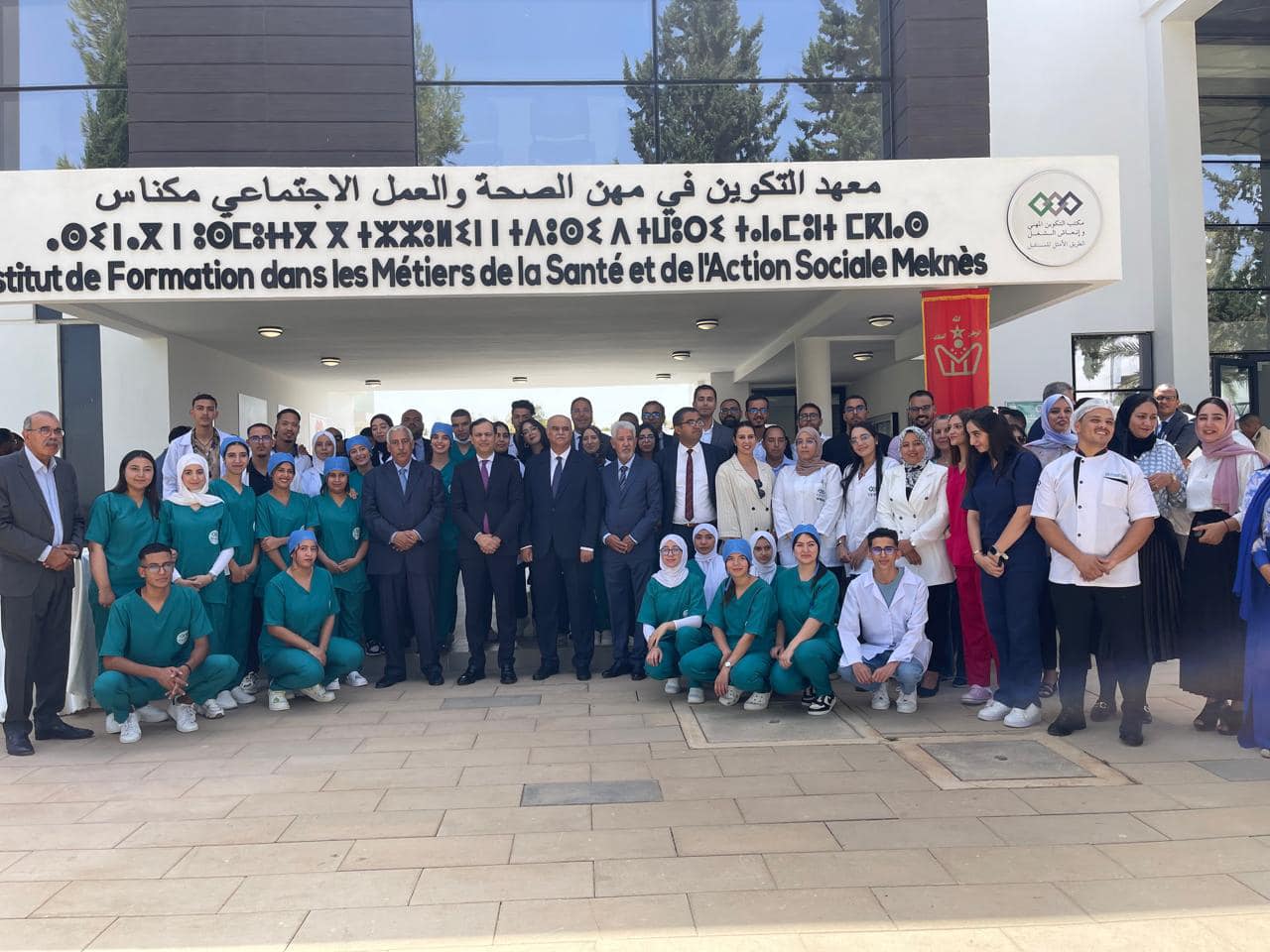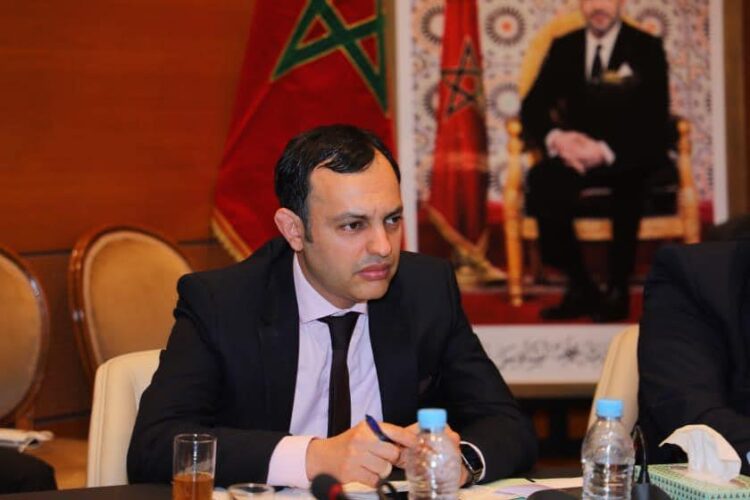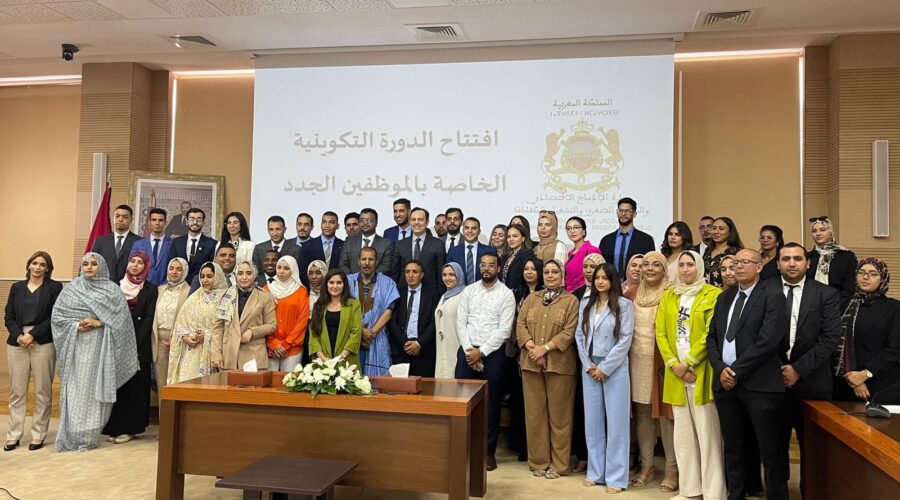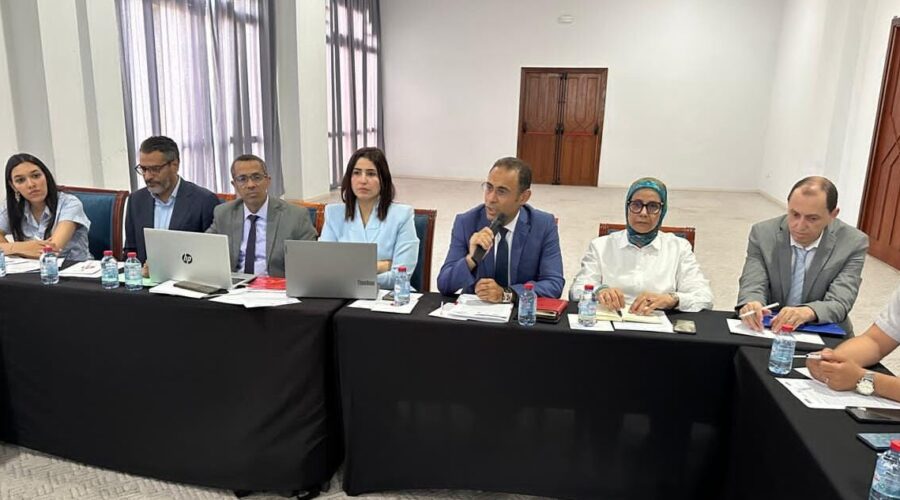Mr. Younes Sekkouri, Minister of Economic Inclusion, Small Business, Employment, and Skills, officially inaugurated the 2024-2025 training year this Wednesday at the Institute of Training in Health and Social Action Professions (IFMSAS) in Meknes. This launch took place simultaneously at the IFMSAS institutes in Béni-Mellal and Oujda.
This new year marks a pivotal moment in the implementation of the strategic initiatives outlined in the Royal Roadmap for Professional Training. It is characterized by a substantial increase in the number of trainees, as well as the opening of new institutions. For the 2024-2025 academic year, 304,760 new enrollees in initial training will bring the total number of trainees to 435,400. The qualifying training programs will welcome 210,345 participants, 18,760 students will join the professional baccalaureate, and 14,100 will enter the collegiate track. Thus, the total number of trainees will reach 678,605 for the 2024-2025 year.
In order to sustain this expansion, 24 new institutions will be inaugurated, including the planned Cities of Trades and Skills (CMC), thus increasing the total capacity of these CMCs to 21,865 places.
From an pedagogical standpoint, more than 25,700 instructors will impart their expertise across over 2,250 institutions, including 1,456 private establishments, marking a 4% increase compared to the previous year. Moreover, in the framework of social support for vocational training students, particularly those hailing from rural areas, the Ministry has further bolstered its boarding infrastructure with the addition of four new facilities, raising the total number of boarding schools to approximately 150, with an accommodation capacity of 19,085 beneficiaries.
In the health sector, a cornerstone of socio-economic development, and in alignment with the Royal Vision for universal access to quality care, the vocational training system has been significantly enhanced. Today, the number of institutions stands at 347, including 326 private ones, training 52,791 trainees across 38 specialized fields. This initiative underscores Morocco’s commitment to producing skilled professionals to meet the growing demands of the sector.
In accordance with the High Directives of His Majesty King Mohammed VI, may God Assist Him, aimed at enhancing the qualifications of youth, the Department of Vocational Training has forged partnerships with enterprises to establish In-Company Apprenticeship Training Centers (CFA-IE). This initiative is designed to develop the skills of young people in alignment with the needs of businesses, thereby facilitating their professional integration while simultaneously improving the competitiveness of enterprises. To date, over 50 CFA-IE centers have been established, primarily within the textile, automotive, leather, and hospitality sectors, with an integration rate surpassing 80%.
In this context, the Minister conducted visits to two training centers in the Fès-Meknès region:
- The In-Company Apprenticeship Training Center (CFA-IE) at a specialized automotive wiring company in Meknes, which trains and integrates 3,600 apprentices over a three-year period.
- The Center for Training and Qualification in Craft Trades Batha (CFQMA) in Fès, which is hosting 487 apprentices this year.These centers provide young individuals with technical and practical training within companies, thereby facilitating their professional integration while addressing the actual needs of the labor market. The Minister took this opportunity to express his gratitude to all partners, directors, supervisors, and trainers for their dedication and commitment to vocational training. He also encouraged everyone to continue with the same energy and spirit of innovation, emphasizing that the success of this new training year relies on the collaboration and dedication of all to meet the expectations of the youth and the economic needs of the country.
Continuing the implementation of the Professional Experience Validation System (VAEP) for employees and self-employed professionals, which aims to ease their integration into the labor market, the Ministry has signed new agreements this year with the artisan sector and professional chambers in four regions. These agreements will certify over 100 employees annually between 2023 and 2026. Since its inception, this program has enabled approximately 1,500 employees in the construction, textile, apparel, meat processing, and craft sectors to obtain certification for their skills.
The event gathered key stakeholders from the sector along with numerous institutional and economic partners. Their presence underscores the essential cooperation between the government and its partners for the advancement of vocational training in Morocco.
This positive momentum reaffirms the Kingdom’s ambition to provide its youth with high-quality training aligned with labor market needs, thereby making a significant contribution to the economic and social development of the country.






